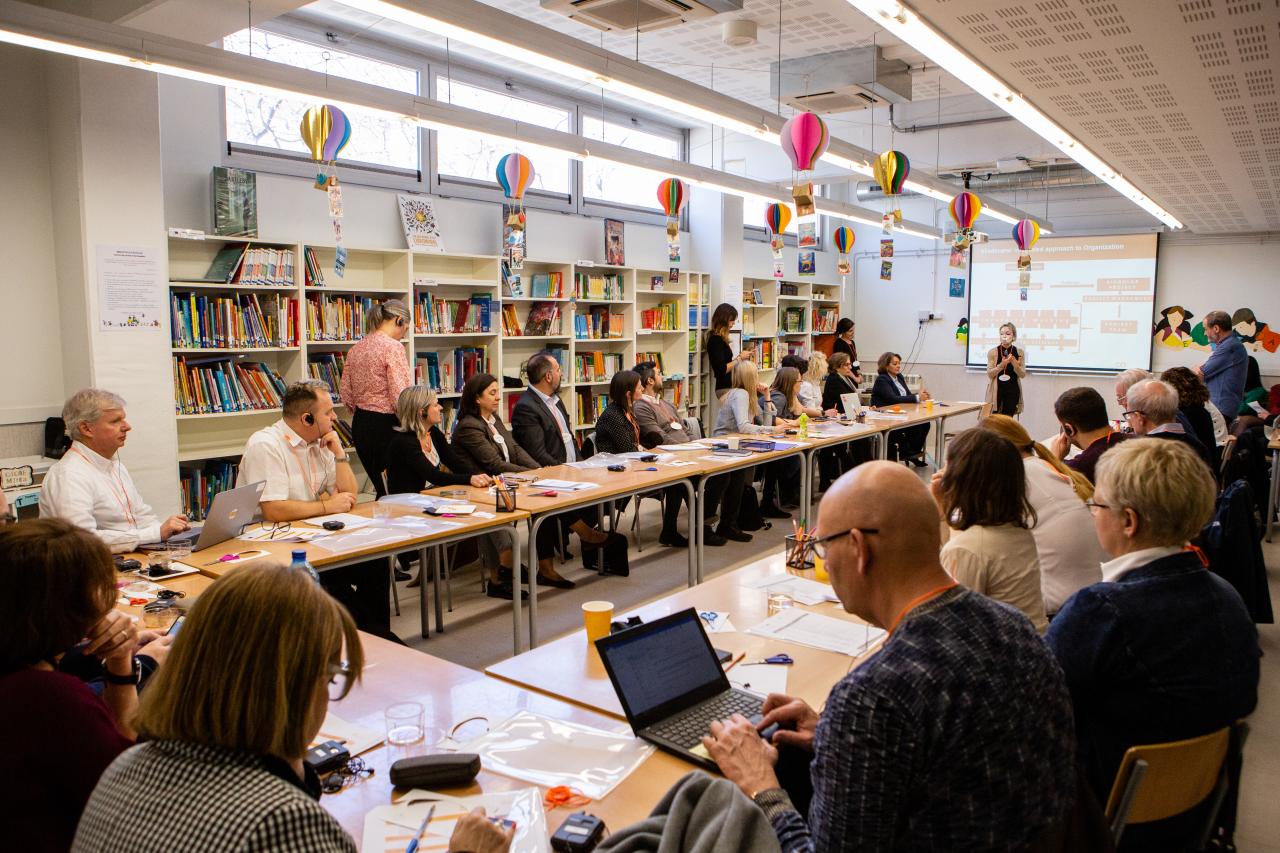
Last month, representatives from the six member cities of the On Board project attended the 2nd-phase kick-off meeting. The event took place at Miquel Martí i Pol school in Viladecans on February 5th and 6th. Politicians and technicians from Nantes (France), Tallinn (Estonia), Albergaria-a-Velha (Portugal), Halmstad (Sweden) and Poznań (Poland) went to Viladecans with the shared idea that local governments are key actors in citizen education.
Starting the transfer process
After a first six-month phase of preparation, the project started last December a two-year phase with two main objectives: the transference and adaptation of the Educational Innovation Network; and, in the case of Viladecans, designing a plan for the improvement of its network. A transfer methodology has been defined to enable the adaptation of the EIN to the local realities of the partner cities. This is a step-by step process. Viladecans Kick-off meeting was focused on the first step: the need of political commitment and the need of a cross-cutting involving all relevant city departments.
Improving the educational experience
During the meeting there were several lectures where tools to facilitate educational innovation at schools were presented. Guillermo Bautista, the lead researcher in the Smart Classroom project, explained the importance of the learning space and talked about how to improve the educational experience from the pedagogical, environmental and digital dimensions.
Innovative Actions in the classrooms of Viladecans
Participants also had the chance to visit some educational projects in the city such as a Smart Classroom, a classroom with adaptable furniture and invisible technologies that intend to satisfy new learning needs; musical partnerships between primary and secondary schools; and the co-mentoring of Upper Secondary research projects with local companies.
A strong commitment from local governments
The last day, the political representatives of the partner cities signed a document outlining their cities’ stance on education and educational innovation and the role that local governments can play. This policy statement also contains these local governments’ commitment to the transfer of the Educational Innovation Network.
This was the first of the six meetings planned in the different European partner cities, each of which will deal with different components of the Educational Innovation Network needed to transfer the network.
